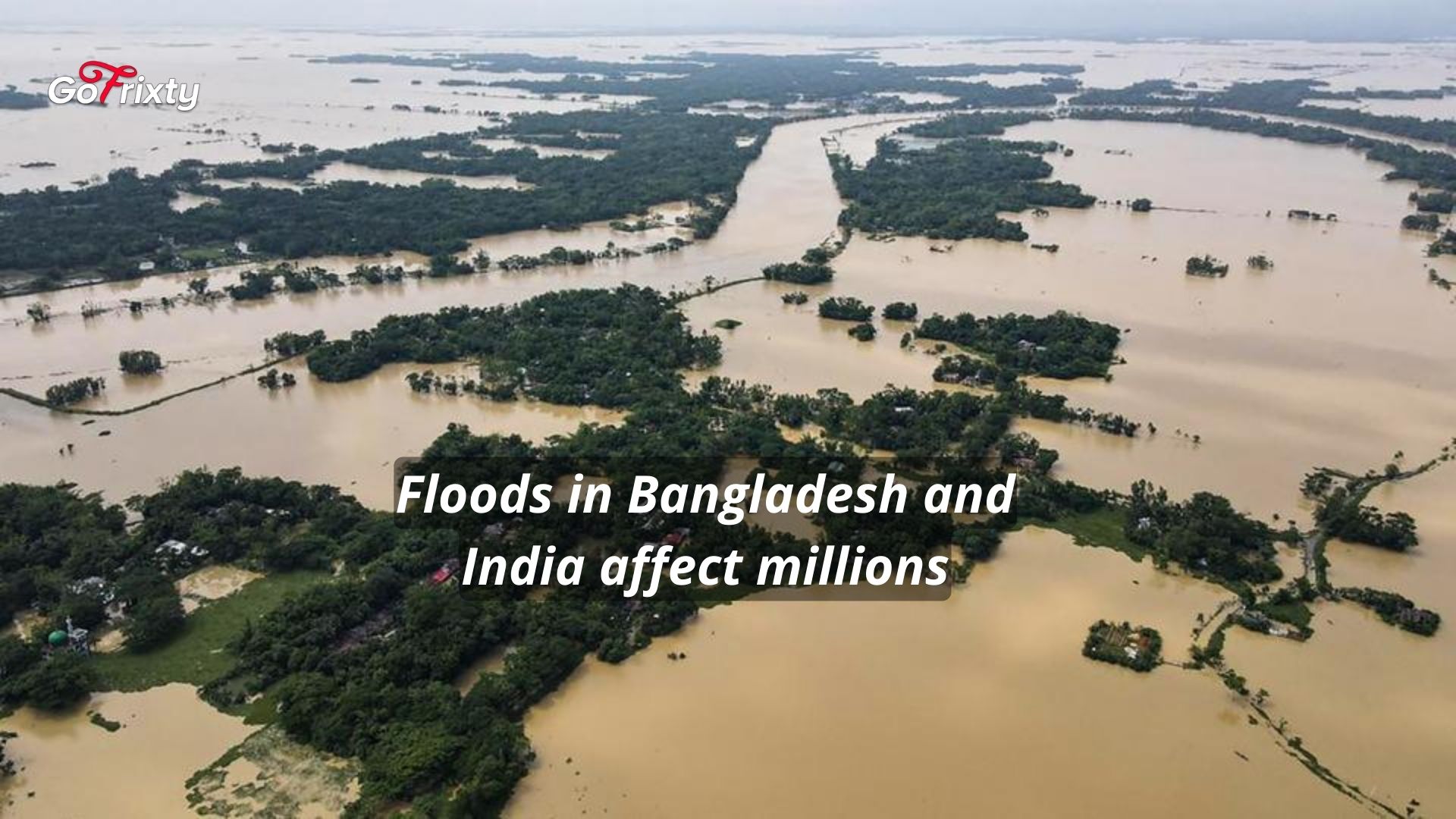Floods in Bangladesh and India affects million, According to the officials, at least 25 people have been kill in Bangladesh and India after floods hit north-eastern sides of the countries. It also unleashed destructive floods that left millions of homes underwater resulting in nearly 6 million people left stranded.
Floods have been a regular peril to millions of people in low-lying Bangladesh, but now with the looming changes in climate it has increased and has occurred frequently and now with more ferocity and unpredictable says experts.
Both Bangladesh and India have asked their military to help to evacuate households cut off from the neighbouring communities. Schools have been turn into relief shelters.
Bangladesh’s neighbor, India’s has faced some similar distress as in Assam state at least 9 people have died in the floods and 2 million others are left without homes as they saw their homes submerge in flood water, says the disaster management agency of the state.
“We expect moderate to serious rainfall in many parts of state of Assam until Sunday,” aforesaid Sanjay O’Neil, an official at the meteorological station in Gauhati, capital of Assam. “The volume of rainfall has been unprecedented.”




